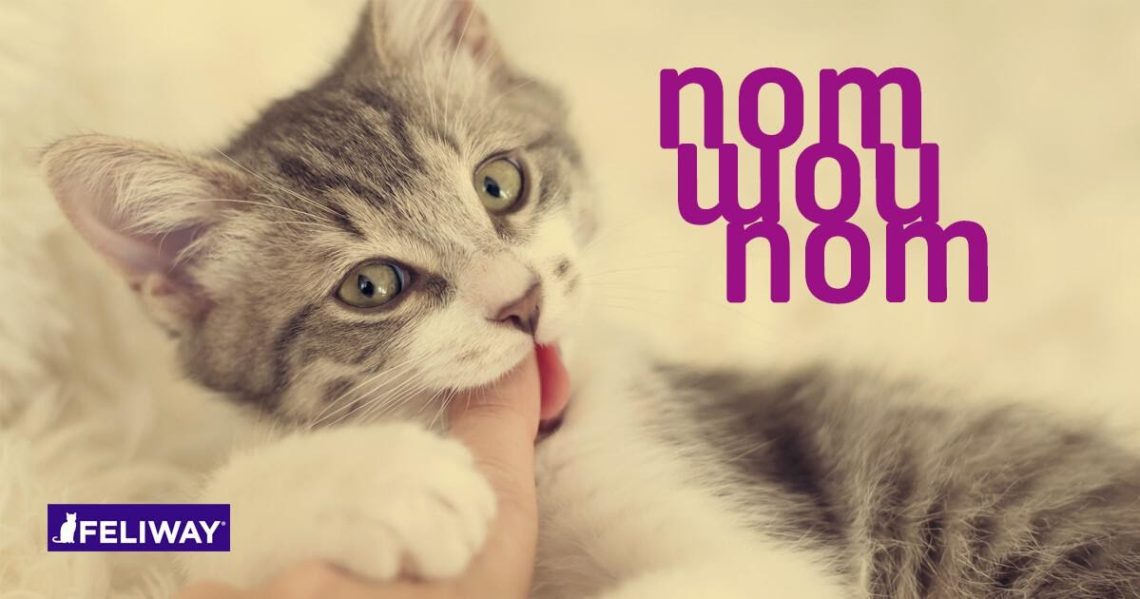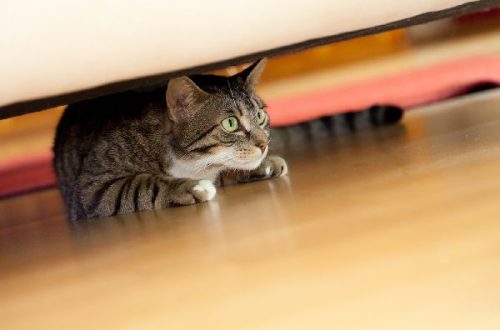
Otu esi agbapu nwa pusi site na ịta ahụhụ na ịcha - ndụmọdụ na ihe kpatara ya
ọdịnaya
Why does a kitten bite and scratch
Normally, an animal should be friendly to humans, because cats were tamed many hundreds of years ago, and trust in people is fixed at the gene level. But there are times when “failures” of behavior occur, and it is very important to correctly and timely detect their cause.
There are also a number of cat breeds that are characterized by caution towards people, unwillingness to close contact, isolation and pronounced hunting instincts. When choosing a pet, you need to take this into account. Plus, for such cats, the correct attitude of the owner is of great importance, since it is much more difficult to wean an adult cat from biting and scratching than a kitten. If such behavior has become normal, it will be difficult to eradicate it.
The reasons that kittens begin to bite and scratch can be divided into several groups:
- game aggression;
- illness and poor health;
- educational problems and psychological difficulties.
Gaming excitement
Domestic cats are deprived of the need and opportunity to hunt. A person takes care of a pet, providing him with food and comfortable housing. Thus, natural instincts are suppressed, which cannot but affect the behavior of the animal. As a result, play becomes a form of kitten self-expression. The invincible desire to be a hunter prompts him to hide in a corner, watching the movement of a potential victim, and then suddenly pounce on her.
In nature, the result of hunting is the killing of prey. Domestic cats are addicted to the game itself. Having caught a toy mouse, they bite, twist, spank it with their paws for a long time, stretching the pleasure. Such fun is vital for both a kitten and an adult cat or cat. A person should not stop the animal’s play activity, at the same time it must be within certain limits.
Excessive passion for the game is the most common reason why a kitten bites and scratches, you can wean it from this by proper education.
An example is the cheetah and its way of hunting in the wild. He attacks the victim, which greatly exceeds his mass. The predator clings its teeth to the scruff of the animal, clasping it with its front paws, and at this time delivers strong blows with its hind legs. This is how small domestic kittens very often play with the hands of their owners. At first, this is amusing, but later, when the cat grows up, hits and bites will no longer be so harmless.
The same can be said about an attack on a person’s legs. The kitten rushes at the walking owner, striking with a sweeping front paw. This is one of the tricks to kill an animal in the wild. Although jumping and biting on the legs can also indicate a lack of attention and a desire to play. It happens that gaming aggression is not associated with excessive enthusiasm, but, on the contrary, with the desire to play and boredom.
Kitten not feeling well
The kitten may bite and scratch if he is worried about feeling unwell. The most common ailments:
- teething – a rather short period for kittens, the problem is solved by buying special toys or treats that can be chewed and chewed for a long time;
- fatigue – the kitten does not want to be disturbed or stroked, and makes the owner understand this by lightly biting him or scratching him;
- hormonal changes – for example, during pregnancy and feeding;
- disease – a kitten, not knowing other ways to signal a person, begins to bite and scratch. In this case, you need to pay attention to the presence of other signs of the disease – loss of appetite, pain when touched, urinary disorders.
If the cause of aggression lies in the well-being of the kitten, then you don’t need to wean him from biting and scratching – you just need to take the pet to the veterinarian, who will examine him and prescribe treatment.
Some cats just don’t like certain touches, such as on the belly area. This is a vulnerable spot in cats, the damage of which threatens with death – the understanding of danger is fixed at the level of instincts, therefore aggression in response to stroking the abdomen is a normal reflex reaction. Stroke the animal so that it is not only for you to enjoy, do not do what is unpleasant for the kitten, and do not be overly intrusive. Perhaps later, when the cat begins to trust you more, he will substitute his tummy for stroking – this is a sign that the animal considers you a close friend and is not afraid.
Ihe kpatara omume
The most extensive and complex group of causes is associated with behavioral characteristics. Cats are mysterious and wayward creatures. Each of them has its own character, on the basis of which a model of behavior is formed. This is the difficulty of education – there are no universal recipes for how to wean kittens from biting and scratching from childhood. Rather, we can talk about general recommendations and what should not be allowed.
Aggressive behavior can be caused by various reasons.
- Fright and Stress – Sensing danger, the kitten may hiss, fluff out its tail, and most likely run away and hide. But if there are no escape routes, then the animal may attack. Something specific can scare a kitten, such as a sharp sound, a smell, or the behavior of another pet. But aggression is sometimes part of the adaptation. Many kittens painfully endure the move and the new environment. In this case, the pet should simply be left alone, giving him time to get comfortable and understand that the new place is not dangerous.
- Competition – the kitten aggressively perceives other animals at home or on the street. This applies to both cats and cats. The fight for territory is one of the strongest feline instincts. If the cause of concern is the neighbor’s cats, which the animal simply sees through the window, then close the curtains for a while. Unable to drive away competitors, the kitten may attack people nearby. If the cause is another animal already living with you, then it is more difficult to solve the problem. Very often it is not possible to reconcile animals. A cage with a bird or a rodent can be placed in a room where a kitten does not exist. But if it is a dog or a cat, it will not work to isolate the pets from each other.
- Protection of the territory – the kitten considers part of your apartment to be its own. If you try to force him out of her, then aggression may become a response. As a rule, this is also associated with the mistakes of education and the encouragement of unacceptable behavior by the owners.
- Early weaning from the mother and the young age of the kitten. The cat lays the foundation for raising a baby. She gradually weaned kittens from milk, forcing them to switch to solid food. Also, an adult cat strictly suppresses unacceptable behavior, including spanking and punishing babies. When a kitten is taken away from its mother early, a person must take on educational functions. But he, as a rule, spoils the pet. As a result, it turns out that the kitten does not have a stopper in behavior, and it will be difficult to wean him from biting and scratching in the future.
- Character and heredity. It is known that aggressive behavior is inherited. Professional breeders specifically cull individuals with inadequate behavior so that their genes are not passed on to future generations. But if you took a kitten from a yard cat, then be prepared for the fact that it will not be easy to tame it. He does not trust people, is not used to close contact with them and, accordingly, may react unfriendly to attempts to improve relations.
- Wrong rewards and parenting mistakes are a very common reason why a kitten fails to stop biting and scratching. Initially, the owner chose the wrong model of behavior, encouraging aggression and not stopping the unacceptable actions of the kitten.
- Psychological characteristics and problems are the most difficult group of reasons for aggressive behavior to be resolved. These include dominance, a sense of vulnerability, the cult of the owner, revenge, lack of attention, nocturnal activity, breed specificity, lack of exercise, complexes.
Dominance involves competition with the owner or the perception of him as a weaker creature. When feeling vulnerable, the kitten decides to attack in order not to be attacked. The cult of the owner means excessive attachment to one of the family members, in which the kitten attacks others. With a lack of attention and physical activity, the behavior of kittens is very similar to the actions of children in a similar situation. They are naughty, tearing up the upholstery of the sofa and wallpaper in order to somehow have fun and attract attention to themselves. Night attacks on the owners are associated with the instinct of the hunter and, as a rule, are solved only by a separate sleep of a person and an animal.
Aggression may be part of the characteristics of the breed. The leader in the ranking of the most evil and vengeful cats is the Siamese. It is said that she can attack and bite the owner for the offense inflicted a few days ago. Also aggressive are various hybrid breeds, which are a mixture of wild and domestic cats. For example, savannah with the genes of an African serval, chausie – a mixture with a reed cat, desert lynx – a hybrid with an American red lynx and many others.
The American Maine Coon, British Shorthair and Scottish Fold cats have a wayward character. Representatives of these breeds are sensitive to human behavior, they are easy to offend. But most owners still speak of them as very affectionate, intelligent, friendly and playful cats.
It is worth mentioning another reason why a kitten bites its owner. A bite can be a manifestation of not only aggression, but also love. In nature, animals in a similar way care for each other and show their sympathy. It is easy to distinguish such a bite from aggression: the kitten either slightly bites the hand, then licks it, then again alternates bites with licking.
How to deal with kitten aggression during play
Based on the above reasons, you can give advice on how to wean a kitten from biting and scratching during the game.
- Let the kitten know that scratching and biting a person’s hands while playing is unacceptable. Offer him toys, scratching posts, balls in return. React strictly if the kitten bites and scratches, immediately stop the game so that he understands that he did wrong.
- Encourage the kitten to play with toys, reward him with a treat. He must understand that only objects, and not the human body, can be the object of hunting.
- If a kitten has bitten you, do not pull out your hand – this will only provoke him. Move your hand towards the mouth, not out of it. This will confuse the animal and break the hunter-prey plot. Accompany your actions with verbal reproach, so that by your tone he understands that you are unhappy and scold him.
- Do not allow the animal to scratch furniture or a person, even as a joke, immediately stop any such attempts.
- Provide the kitten with the opportunity to sharpen its claws, equip a special place for this. Every time he tries to scratch walls or furniture, take him to the scratching post, accompanying this with verbal directions in a stern tone.
- If the kitten is carried away by the game and goes beyond what is permitted, divert his attention to some object that interests him: a ball, a twig, a rope, a bow or any other toy.
- If the kitten has a strong grip on your hand, relax it and stop moving. In the wild, this means the death of the prey, so the predator instinctively opens its jaws.
- Sometimes the solution may be to get a second kitten – two animals will have more fun, and you won’t have to look for human attention. At the same time, this can provoke competition between kittens, so it is better if you take two babies at the same time so that they initially divide the territory among themselves and establish relationships.
- Remember that a kitten is not a toy, do not let yourself or children torture him, grab his ears, paws, pull his tail. The animal very sensitively understands the rules of behavior – if aggression is allowed to a person, then it is possible for him. Plus, a defensive reaction, a sense of vulnerability, anger and other psychological factors are added to this.
- For very playful kittens, it is recommended to equip an entertainment corner where they can climb, jump, sharpen their claws, play with hanging toys.
How to fix mistakes in raising a kitten
In most cases, it is necessary to wean a kitten from biting and scratching due to errors in human behavior.
- Do not let the animal play with human hands and feet. Bites and scratches during the game are entirely the fault of the owner. To stop unacceptable behavior, you can shout loudly, clap your hands. Some owners of playful kittens are advised to hiss – in this way, animals threaten each other, so they perceive such a signal very clearly.
- Be careful with punishments. A person should not show aggression towards an animal. You can lightly slap the kitten on the nose, but don’t cross the line between pointing out inappropriate behavior and causing pain. You can not beat the animal with your hands and feet, use a light newspaper or a thin twig. Do not lock the kitten in an enclosed space. The ideal punishment option is a spray bottle with water. It does not cause harm or pain, but the animal remembers this unpleasant effect well. And remember that the punishment should be immediate, within 2-3 seconds after the misconduct. Further, the kitten will no longer understand what you are punishing him for, and will perceive it simply as unfriendly behavior.
- A typical mistake is petting the owner before some unpleasant procedure, such as bathing or vaccination. Such enticement forms a negative experience and distrust of a person. In the future, with any caress, the animal will expect something bad and react aggressively.
You can also give some general tips on how to wean a kitten from biting and scratching:
- take the kitten in your arms more often, stroke it if it is perceived positively by him;
- create a calm environment at home, try not to scream or swear with other family members – so the animal will be more calm;
- do not try to break the character of the animal, but also do not let him manipulate you, do not go on about when the kitten demands something with bites or in another inappropriate way;
- often play with the kitten, giving him the opportunity to frolic. A good solution for this would be a laser pointer – any kitten loves to chase after a bright moving dot.
How to wean scratching and biting a kitten with a mental problem
Cats have a rather complex psyche, combining heredity, reflexes, and acquired stereotypes of behavior. Almost like humans, they have mental problems and disorders.
There are several recommendations on how to wean a kitten with psychological complexes from biting and scratching.
- Respect the personal space of the animal. Sometimes the cause of suffering is the inability to retire and relax. A cat in a noisy environment dozes, but does not sleep, being in constant readiness for the appearance of danger. So chronic overwork leads to irritability and aggressive behavior.
- Give the kitten the opportunity to hide somewhere high up. It can be a special house or just a place on the shelf where he can get. Cats feel safe watching their surroundings from above. Remember the yard cats, which, at the slightest danger, climb high into a tree.
- The place where the kitten eats should also be quiet and secluded.
- Let the kitten have his things. It can be more than just toys. Give him an old sweater, a towel, a blanket – something that used to belong to you, but now can be a bedding for the animal to sleep.
- Follow the daily routine and nutrition. The established regime is a psychological support for the animal.
There are times when it is almost impossible to cope with the aggression of cats. If there is a “cult of the owner”, then it remains only to adapt and be guided by general recommendations for handling a pet. Especially often this problem occurs when a new family member appears, for example, a child. The cat lives in an already established hierarchy and aggressively perceives a stranger. The solution here may be the behavior of the owner himself – he must let the pet understand that the new family member is important to him and it is unacceptable to bite him.
Sometimes there is also the so-called idiopathic aggression. It can occur in both a kitten and an adult cat. The previously affectionate pet suddenly begins to rush at people, including the owner. It is not always possible to determine the cause, most often this happens after suffering severe stress, illness, hormonal failure. If the cause cannot be found and eradicated, and the behavior of the animal does not change, then it is euthanized. Such mental disorders, unfortunately, cannot be corrected. But such a pathology is very rare, in most cases a kitten can be successfully weaned from biting and scratching, especially if this is done immediately from the moment it appears in the house.





